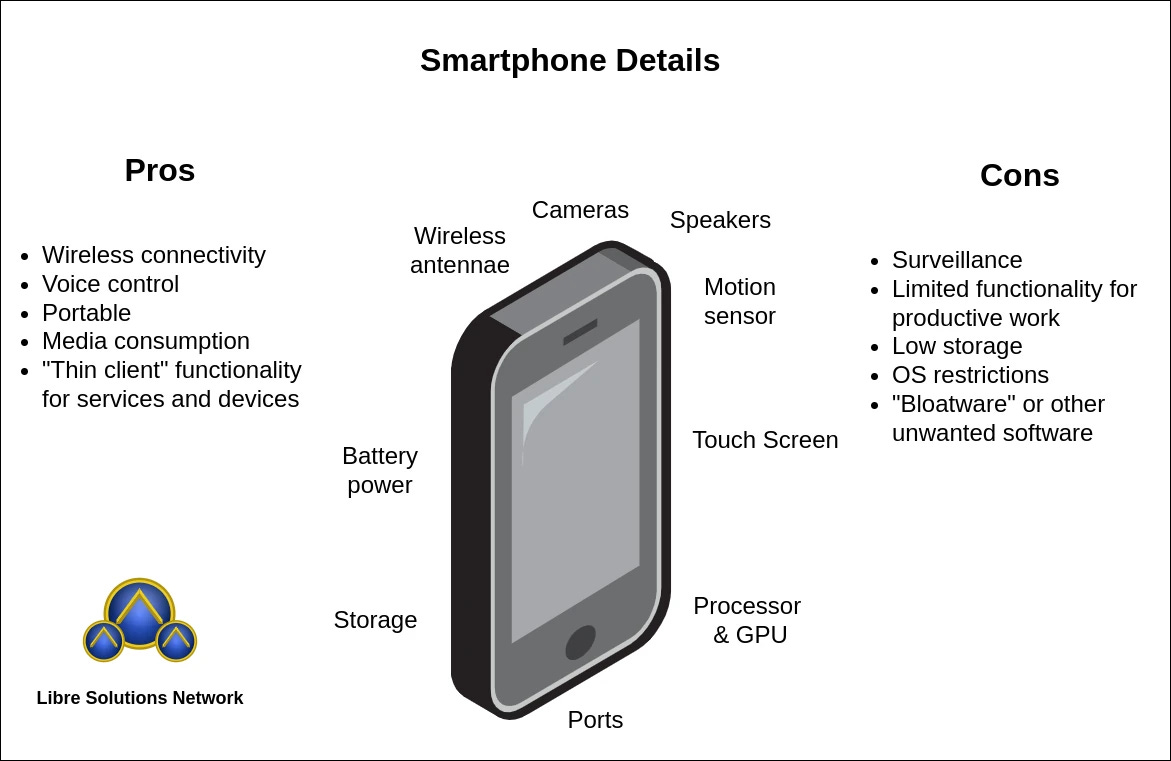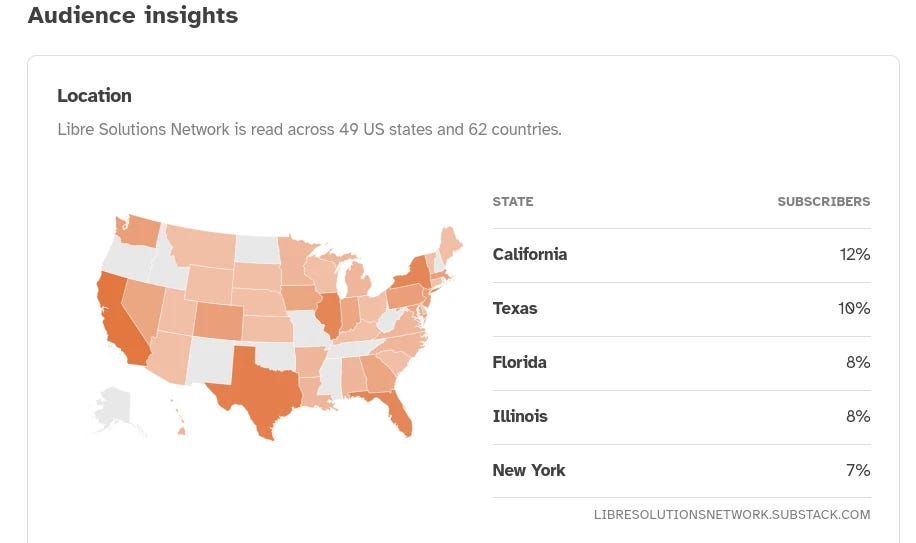Tools: the Good and the Bad
Understanding technological choices.
If all you have is a hammer, suddenly every single thing starts to look like a nail.
Hardly and tool itself is wholly evil or entirely good. Not only are the tools themselves important, how we use them matters quite a bit as well. This applies all the way from the entire software ecosystem, down to the hardware components themselves. The fundamental attributes of the tool will set the incentives for how they can be used, and how they are used creates incentives for how future tools will be made. This feedback loop can be used to concentrate power or to distribute it. This is precisely where your understanding is a prerequisite for making deliberate choices.
Concepts
Autonomy
Can I do what I want, on my own terms?
Privacy
Does using this, divulge information in unnecessary or unwanted ways?
Efficiency
Does it complete it’s function with minimal waste?
Verifiability
Is it possible to validate the condition and function(s) of it?
Accessibility
Is it reasonably useful to those with different needs and requirements?
Examples
In the past, I have been asked for a quick answer to explain if a particular technology or system is itself good or bad. It can be difficult to give a concise answer when there are often a couple of fine points that are worth taking the time to focus on. It has often been said that the medium is the message and this much more the case when it comes to digital and online systems.
QR Codes
With the introduction of vaccine passports, QR codes have soured on a lot of people. Gating access to venues or services behind the need for one to digitally identify themselves presented many serious risks to privacy and civil rights. Unfortunately, none of this required a QR code specifically. NFC or RFID access cards could provide the exact same functionality. While QR codes were a highly-visible mechanism to enable automated segregation, there’s no guarantee that future systems of control will look the same.
This is because QR codes are just one of many ways to transmit data over a short distance. Using a camera the device detects the pattern and then decodes it into the required data format. This can just be a bit of text, a website URL, or binary data. I don’t think there’s anything inherently harmful to QR codes being used on things like posters and business cards provided that they aren’t hiding data or using tracking links.
QR codes are not all created equal!
Because anything can be encoded into a QR code, there are still some risks to be aware of. Just like you shouldn’t open strange links, you may not want to open every QR code you see. This is why some QR reader apps will display the decoded information so that you can decide if you want to open the link or not.
Another problem is that you may not even be able to decode the QR code at all. If you have to present an app-generated QR code to interact with a system, you may not have any knowledge of what data is being used and shared.
Smartphones
The powers-that-be don’t want you to write your own stories, make your own movies, and draw your own art, even though everyone has, in their pockets, the technology to do all of the above, with a good wireless keyboard, a camera module, and a stylus.
No, they want you to read their dumbed-down prolefeed, watch Netflix, Instagram your cat, your food, and your cat food, swipe through Pinterest a few times, get your daily fix, and then peacefully, complacently, obediently nod off on the couch. They don’t want people carrying around devices that center the user as a creator of content. Instead, they want you to do nothing but consume their approved messages.
In short, for the vast majority of people, they’re trying to turn personal computers into television. They’re trying to drag us backwards, into a prior era, where the ruling class had a death grip on the narrative. This is a trend that must be resisted. Never give up your keyboards, ever.
Spartacast 06
If someone was limited to only using a smartphone they may be severely limited in what they’re able to accomplish. As you can see, the consequences of giving up a keyboard alone are immense. If that wasn’t bad enough, these devices tend to be vulnerable to malware exploited by all kinds of bad-actors. Smartphones are a high-value target because many people keep a treasure-trove of personal data. If that wasn’t bad enough often the manufacturers themselves will participate in undermining your privacy.
I’ve written in the past:
It’s not the smartphone, but what was in it.
There is nothing inherently mind-killing about a small, portable computer that uses a touch-screen interface. What truly forged the massive mind control apparatus was the things that came with it:
Real-time location tracking
24/7 audio and video surveillance capabilities
Corporate Social Media as Digital information Control Systems
There are many ways that the useful parts of smartphones could be replicated in a simpler, more focused device. Re-installing android without google play services can go a long way for many android devices, but in the long run it would be excellent if we could support independent manufacturers that create genuinely good devices.
Centralized Platforms
A tried-and-true business model is to run a platform that allows users to create valuable content. With a large audience to attract all kinds of writers, musicians, podcasters, or even video producers, the platform can double-dip acquiring data on the audience as well as the performers. Just as creators will be able to see stats for their content, the platform’s operators themselves will have all kinds of metrics and data on everyone.
Creators on these platforms essentially trade some (or all) control over their content in exchange for an audience. No matter what method you use to disseminate your message, it’s critical that you maintain control over your work. For example, the Libre Solutions Network is written for the website first, then the content migrated to substack for additional reach. This means that if I ever lost access, or decided that staying on the platform wasn’t worthwhile, all the content would still exist.
As a member of the audience, it’s critical that you help make it possible for creators to maintain their own independent presence. Simple habits like bookmarking and using an RSS reader can really make a huge difference in supporting an independent information landscape. At the very least it’s vital that you ensure that your attention isn’t entirely locked to a single or set of controlled platforms.
Machine Learning
The most dangerous aspect of AI right now is that it’s being used as an excuse to build a regulatory environment that empowers the very same technocrats to have even more digital control over people. While machine learning tools are very effective force multipliers in particular situations, most of the so-called AI risks have already been done by people to people with tools that are already readily available. Humanity has never lacked the tools to totally and completely annihilate itself, additional powers and tools only represent a danger to the degree they tip the scales.
For example, while I currently choose not to automatically narrate all my posts with a cloned voice, it’s a viable option. I would definitely oppose any effort that seeks to keep such technology out of people’s hands, especially if there were offline-available tools that could be used without assistance from cloud services. Those who’s power relies on information being a controlled resource would love nothing more than to have a monopoly on extremely efficient content creation.
There are many efficient uses of machine learning that don’t automatically enable obscene privacy invasion. Distributing pre-trained models would be a great way to help people get more use out of low-power systems, potentially preventing a massive amount of waste. A prerequisite for better AI tools is a better way of building them. Instead of allowing big tech to hoover up all of everyone’s information, we need to work together to collaborate on important datasets with data we choose.









In terms of fighting the digital fiefdom, I just posted this: https://thirdparadigm.substack.com/p/how-to-be-czar-of-your-fiefdom. Fun synchronicity!
Good advice!
I already do a lot of this. Everything I write on Substack is written first on my laptop and viewed using Hugo (a static web site generator), then uploaded to my personal web site (on a VPS I control), then finally migrated to Substack. Because I'm a bit paranoid, I also back up this laptop to an external hard disk in my home, and another one off-site.
Because I follow almost a hundred Substacks and other info sources, I use an RSS reader instead of dealing with hundreds of email notifications. It keeps the info firehose in one place.
And good keyboards are a must! I have been using ThinkPads for 25 years and they almost always have great keyboards. Even the "chiclet" keyboard in my "new" one, a seven-year-old ThinkPad T450s, is really very good: it has concave keytops instead of being flat, featureless slabs, and feels great. I hate typing on smartphones and tablets, and I'm amazed anybody can use such crippled devices as writing tools. Plus the darned things have tiny screens and no ethernet ports.
Finally, I have been using Linux on my ThinkPads for 25 years: another way to take back control from Big Tech.